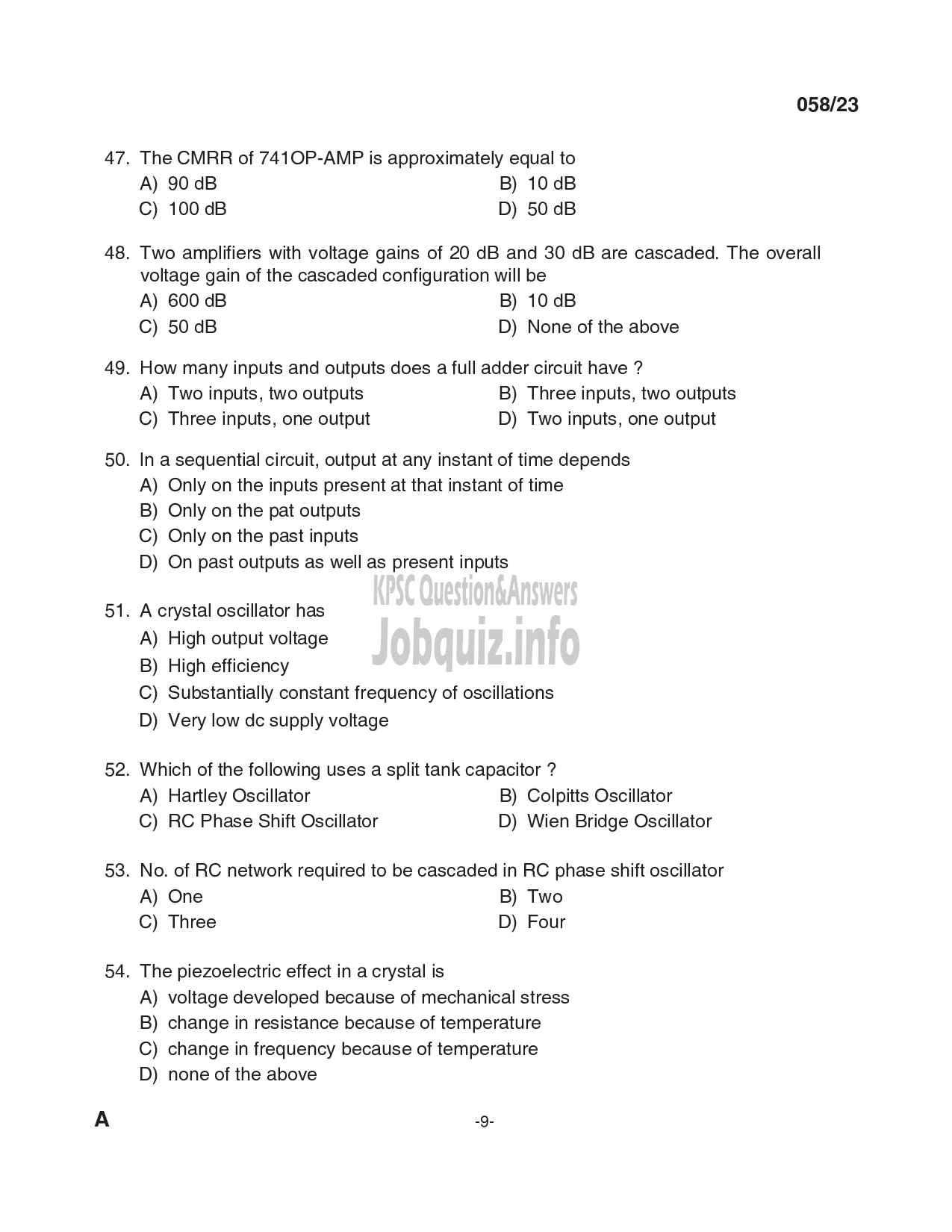Kerala PSC Previous Years Question Paper & Answer
Page:9
Below are the scanned copy of Kerala Public Service Commission (KPSC) Question Paper with answer keys of Exam Name 'Workshop Instructor/ Demonstrator/ Instructor Grade II in Electronics and Communication' And exam conducted in the year 2023. And Question paper code was '058/2023'. Medium of question paper was in Malayalam or English . Booklet Alphacode was 'A'. Answer keys are given at the bottom, but we suggest you to try answering the questions yourself and compare the key along wih to check your performance. Because we would like you to do and practice by yourself.
47.
48.
49.
50.
51.
52.
53.
54.
058/23
The CMRR of 7410P-AMP is approximately equal to
A) 90 dB 8) 1068
0) 10068 D) 50 dB
Two amplifiers with voltage gains of 20 dB and 30 dB are cascaded. The overall
voltage gain of the cascaded configuration will be
A) 600 dB B) 10dB
©) 50 ५8 D) None of the above
How many inputs and outputs does a full adder circuit have ?
A) Two inputs, two outputs B) Three inputs, two outputs
C) Three inputs, one output D) Two inputs, one output
In a sequential circuit, output at any instant of time depends
A) Only on the inputs present at that instant of time
B) Only on the pat outputs
C) Only on the past inputs
D) On past outputs as well as present inputs
A crystal oscillator has
A) High output voltage
B) High efficiency
C) Substantially constant frequency of oscillations
D) Very low de supply voltage
Which of the following uses a split tank capacitor ?
A) Hartley Oscillator B) Colpitts Oscillator
C) RC Phase Shift Oscillator D) Wien Bridge Oscillator
No. of RC network required to be cascaded in RC phase shift oscillator
A) One B) Two
C) Three D) Four
The piezoelectric effect in a crystal is
A) voltage developed because of mechanical stress
B) change in resistance because of temperature
C) change in frequency because of temperature
D) none of the above
